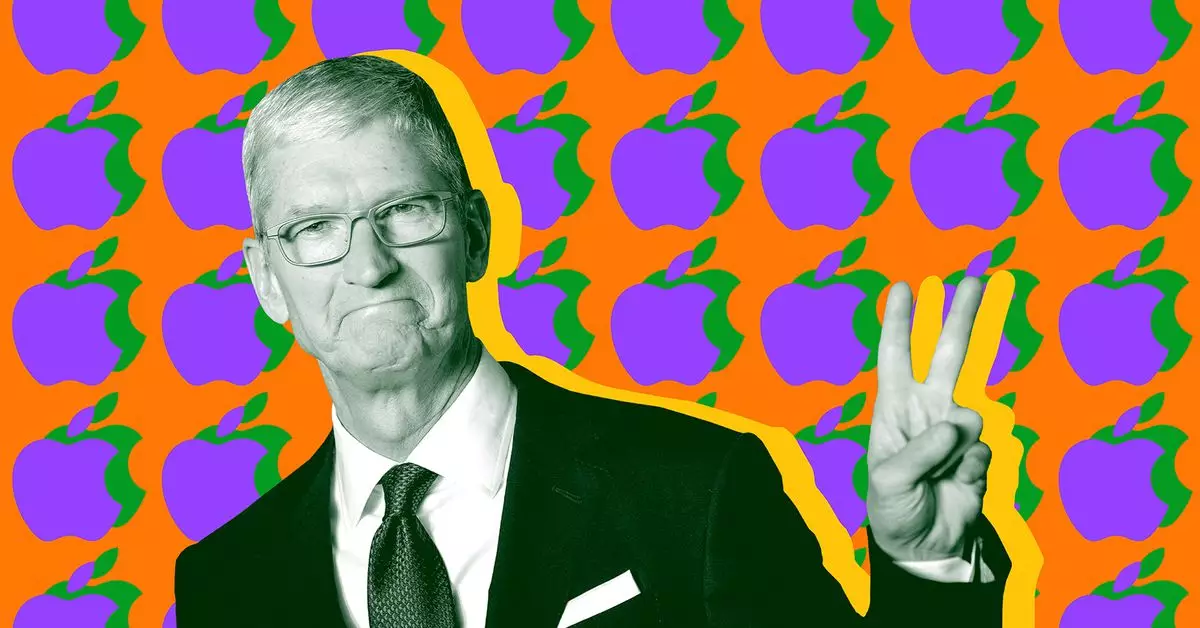In an era where the intersection of technology and politics is more pronounced than ever, the financial contributions of tech executives to political events draw significant attention. Recently, Apple CEO Tim Cook joined a list of industry leaders who donated $1 million to President-elect Donald Trump’s inauguration committee, a move that aligns him with other technology magnates like Sam Altman of OpenAI and Amazon’s Jeff Bezos. These contributions aren’t merely acts of generosity; they serve as strategic gestures aimed at strengthening relationships with those in power.
The act of donating to political causes can often be viewed through a lens of ambition and market strategy rather than altruism. By contributing to Trump’s inauguration, Cook appears to be seeking a foothold in an administration that many in tech view as critical for regulatory and economic concerns. This form of corporate philanthropy isn’t new; tech leaders often engage in such transactions to create allies within government. It reflects a growing trend where business leaders feel compelled to align themselves with political figures to safeguard their interests and influence governmental policy.
Cook’s relationship with Donald Trump has been openly nurtured, contrasting sharply with the sometimes adversarial dynamic observed between other tech leaders and the Trump administration. Cook’s willingness to interact with Trump—whether through congratulatory messages post-election or engaging in discussions at locations such as Trump Tower and Mar-a-Lago—illustrates a calculated effort by Cook to foster rapport. This personal connection not only serves Apple’s business interests but also raises questions about the dynamics between corporate leaders and political players.
The trend of tech executives contributing to political endeavors reflects a broader pattern in an industry that increasingly finds itself under the microscope of regulatory debate. The relationships built through such financial support could not only provide them with a platform from which to discuss their concerns but also influence policy that affects their businesses directly. While Cook’s contributions might be characterized as gestures of unity and support for American traditions, they are also intricately woven into the fabric of corporate strategy and influence.
As we move forward, the question arises: what does this mean for the future of corporate engagement in politics? The relationships cultivated between technology leaders and political figures may reshape the landscape in which we navigate policy. As economic and technological realities continue to evolve, the positioning of entrepreneurs and executives as key political players could redefine governance. Thus, the implications of Tech CEOs’ financial support for political events may resonate well beyond a singular occasion, potentially influencing the evolution of regulatory frameworks and corporate accountability in the years to come.
While Cook’s donation could be seen as an innocent act of support, its roots are deeply embedded in the complex web of business-political relations where influence and strategy reign supreme.


Leave a Reply